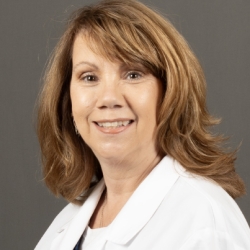Early detection can help save lives.
If you are between 50 and 80 with a history of smoking, call the MVHS lung nurse navigator at 315-801-8588!
The Lung Cancer Screening Program can help individuals between the ages of 50 and 80 with a history of smoking detect lung cancer before any symptoms appear and help save the lives of those at high risk for lung cancer. Participants in the program are screened on a regular basis and their health is monitored by a team of caregivers. The nurse navigator serves as a resource for participants throughout the program to coordinate care. Patients are seen by a provider in the program to determine the best options for each individual patient.
Q: Am I a candidate for lung cancer screening?
A: If you meet the following criteria, you are considered to be at “high risk” for developing lung cancer and screening is recommended:
- 50 to 80 years of age
- History of smoking (with a 20 pack year history).
To determine if you are eligible, call the MVHS lung navigator at 315-801-8588.
Q: Why is lung cancer screening only recommended for a certain group of people?
A: Experts look at the available data and use complex equations to determine who should be screened. If you are not in the high-risk group that means data has not yet shown that the benefits of screening outweigh your risks.
Q: Should I get a low-dose CT scan to screen for lung cancer?
A: If you are at high risk, talk with your doctor about participating in the MVHS Lung Cancer Screening Program. Screening for lung cancer may save your life. There are some risks and not everyone should be screened, so discuss your complete health history and the benefits and risks with your doctor.
Q: What happens if I choose to get a low-dose CT scan for lung cancer?
A: MVHS has a team of experts who will clearly explain the procedure to you. The team will tell you about all the risks and benefits of the screening and discuss what the results can mean and how they will follow up with you after the initial screening.
Q. What do the results mean?
A. A “positive” result means that the low-dose CT scan shows something abnormal. This is usually a nodule of a concerning size. You may need to have additional scans or other procedures to find out exactly what it is. The lung nurse navigator will discuss the next steps with you and your physician.
A “negative” result means there were no abnormal findings on this low-dose CT scan. It does not mean that you will never get lung cancer. The lung nurse navigator and your doctor can help you determine when you should be tested again.
There may also be an “indeterminate” result and your doctor may recommend watchful follow-up and further imaging at a later time.
The best way to reduce your lung cancer risk is to never smoke or stop smoking now. If you smoke, talk to your doctor about ways to help you quit.
The goal of the Lung Cancer Screening Program is to assist in monitoring pulmonary nodules and to increase the number of patients screened who meet the criteria for lung cancer screenings. If ever a diagnosis of lung cancer is made, the goal of the program would be to expedite care and treatment for the patient.
Seventy-four percent of lung cancer patients in the Mohawk Valley are diagnosed when they are having symptoms, which means they are already at stage III or IV. The five-year survival rate is 18 percent. By having a yearly low dose CT, the survival rate significantly increases for stages I and II from 53 to 92 percent.




